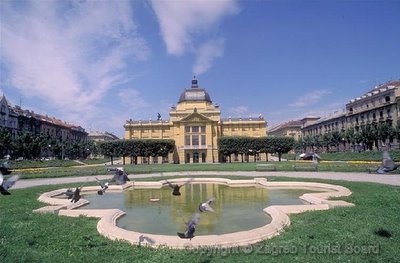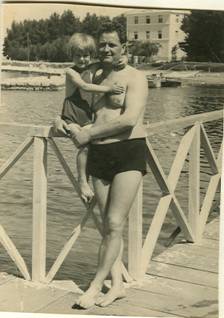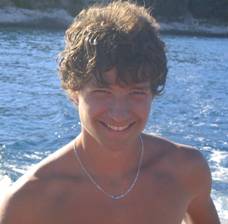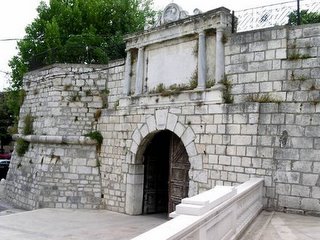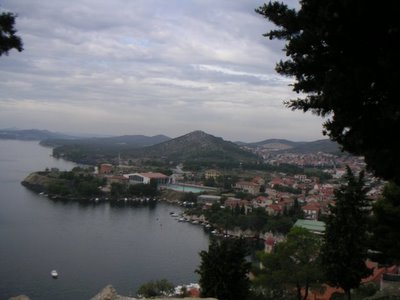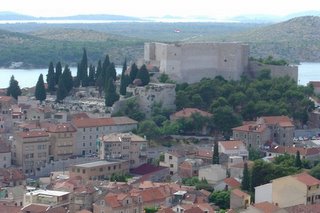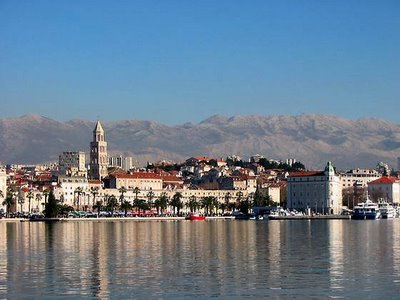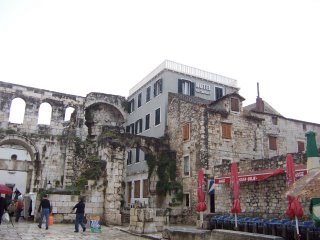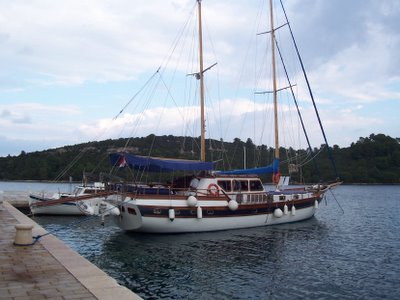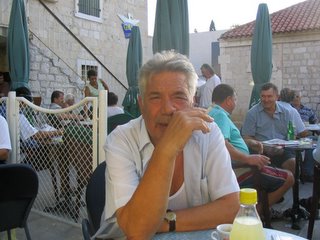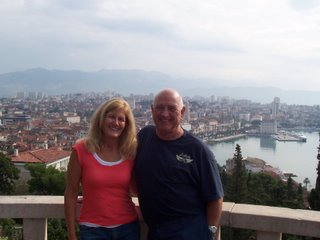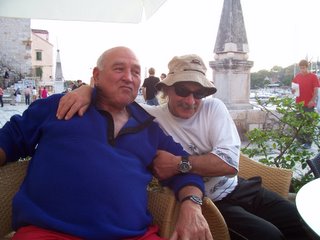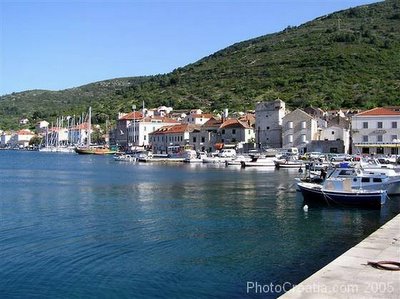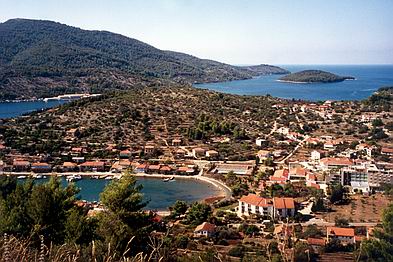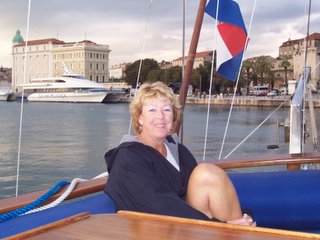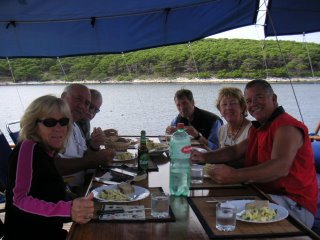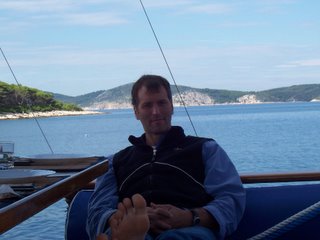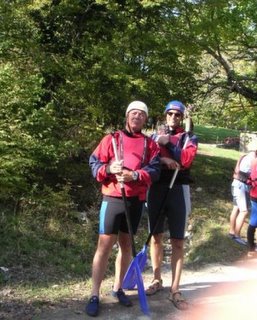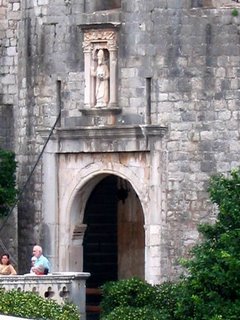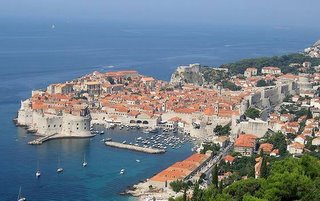 Dubrovnik Ahoy
Dubrovnik Ahoy
The drive from the
Cetina River to
Dubrovnik is long, slow and punctuated with breathtaking sights as the
Adriatic to our right dazzles us, and the dry mountains to our left sit as ponderous sentinels.
Bananas sustain us.
Our only stop was at a border control check where this coast-hugging, single lane road briefly enters
Bosnia and Herzegovina (two words, one country) before resuming in
Croatia.
This segment is a study in contrasts: that BH is
Photo: http://www.photocroatia.com/GALLERY/photo.php?photo=11684&u=322|7
economically poorer than its neighbor is obvious, from the disrepair of buildings to aging billboards.
And the police are salient, whereas in
Croatia they are hardly noticed.
More obvious than the police, however, was a
U.S. war ship patrolling an inlet near the border, a heavy reminder of the war a decade ago, and of bellicose attitudes simmering still.
After another hour or two, our proximity to Dubrovnik becomes apparent, for the closer we get, the more populated are the towns just north of the fabled city, and more cruise ships are found in the waterways. In my pocket is the address of my new lodging, and I pull it out to present to our driver. He stops to ask directions and soon thereafter, we pull along side a bus stop near the east gate of the historic and fortified “Old City”.
I can tell from the directions that we’re very close to my destination and I want to get on with it, but the driver motions me to wait as he speaks to a young couple who disappear down the alley that I think leads me to my accommodations. Gestures suggest that I wait. We all wait, and wait until, finally, the couple reemerges, whereupon I say my goodbyes to Mike and Colleen (who now will be taken to their fabulous hotel just east of Old City), and then turn to follow my guides.
Eddy and My Accommodations
At a door in a gate in front of the building where I presume I’ll be staying, I wait again, as the woman half of my guides rings the bell on the gate door. She does it again, and after a minute or two, presses the button again. No response. She looks at us and shrugs. Just before confusion is to permanently congeal, the door magically opens and she disappears. I wait again beside her mute husband (I did determine this relationship at least). Finally, the woman and someone vaguely familiar looking emerges from the house and motions us to a simple courtyard to the left. We all take seats as if there’s something to be negotiated. And, indeed, there is.
The familiar looking man is the owner of the home in which I had already paid Stepjan, the travel agent in Split, for a room and private bathroom. He’s all smiles as he looks at me and says in excellent English, “My name is Eddy and I’m committed to your happiness…. I want you to be completely happy.”
I’ve traveled the world, I’ve known bullshitters, I’m no longer green, and I knew something was up. “That’s good”, I answered as I sat as tall as I could and leveled at him a no nonsense glare, “because I like to be happy.”
Eddy fidgets some and glances down at his clasped hands. “I made a mistake. The people in your room wanted to stay another day and I let them, but this couple here has a nice room for you. Come on, I’ll go with you and show you. It’s in the Old City, so you’re closer to everything.”
I make him repeat it all and guarantee me that the room was of equal quality (which, having never seen the room he offered, I didn’t know what that would be). After all the assurances were expressed, we are about to arise and move on, when two Irish women in their early twenties stride by. Eddy’s attention immediately drops us and rivets into the young women. He didn’t salivate, quite, but then perhaps he didn’t have time to, for after he extracted some guarantees that he’d see them later, they continued on their way. “They’re the ones that were supposed to leave today”, he sheepishly said to me. “I see”, I said, and I did. This Eddy is a player at best; more likely a shyster, I thought.
 Croatian Chronicles:
Croatian Chronicles: